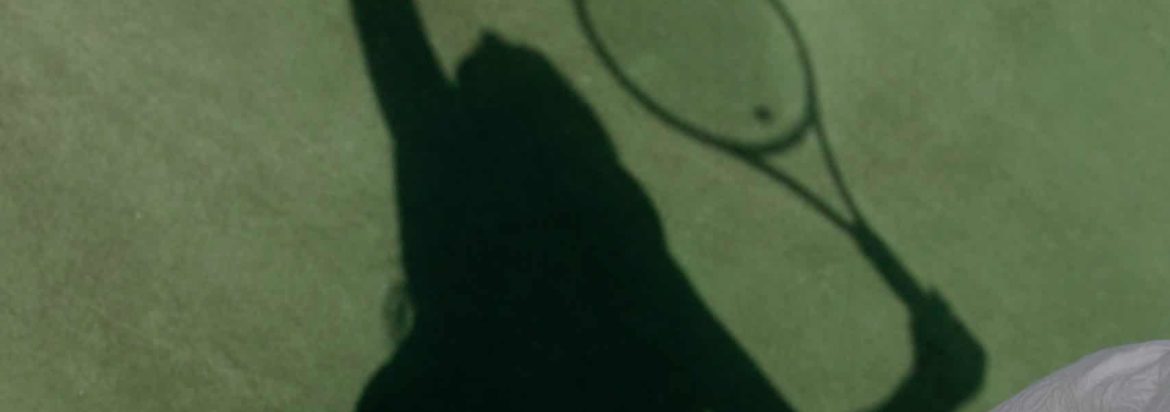If I don’t get this second tennis serve in, my partner and I will lose the game. I’ve double-faulted once before, so I need to focus. Really focus.
I tighten up, clench the racket, and toss the ball. I bring my racket down. Wham!
My serve lands outside the box. Double fault. Way to lose the game, I grumble to myself.
Head bowed, I force myself to meet the three others at the net for the “Nice games” comments. As we touch rackets, I rewind to all my losing shots. If only I would have run faster and gotten to that lob sooner. If only I hadn’t given my opponent that wimpy return at the net. If only I had followed through on my backhand …
My partner and I stay on the “loser” court and two new players greet us. My new partner asks, “How’s your game going?”
I’m tempted to answer lousy, but my uptight, negative thinking hadn’t helped my serving, so I readjust. “We had some nice long rallies.”
“That’s what counts. Let’s have fun.”
One of my new opponent’s shots is short and just clears the net. I sprint, get there, and return it. Her partner sends it rocketing back toward me. But I have my racket in position, and, trusting my body knows what to do, hit the ball so it angles away from both players.
I remember advice from W. Timothy Gallwey’s book “The Inner Game of Tennis” and continue to adjust my attitude and just let it happen. I savor all my good shots, and those of the other three players too. My encouraging teammate and I delight in her perfectly placed lob, my powerful return to an opponent’s backhand, her cleverly placed alley shot, and my short dribble over the net. We have fun.
I replace judgment and worry with trying to guess an opponent’s strategy, helping my teammate, and I find pleasure in what could be called mindfulness since I focus only on the game.
I delight in the swish of dynamite serves; the twang of our well-hit ground shots and lobs; and the ping of good net play. I’m in perfect contentment when I hit the ball on my racket’s sweet spot. I make errors, but I simply brush them off and trust I’ll perform differently next time. I concentrate, but my mind is quiet and I’m relaxed. I picture myself succeeding by serving aces, getting to the ball in time, lobbing over my opponent’s head, and being a champion at the net.
I don’t think about past mistakes or what will happen if I win or lose. I welcome every challenge.
The lesson I learn carries over to the rest of my day. I picture myself as a gourmet chef and choose ingredients for a red wine beef stew. I challenge myself to make the grumpy store clerk smile and am delighted when she does. On my trip home, I let a driver into traffic and am rewarded with a friendly wave. I focus on my good shots, delight in challenges, and enjoy the game.

